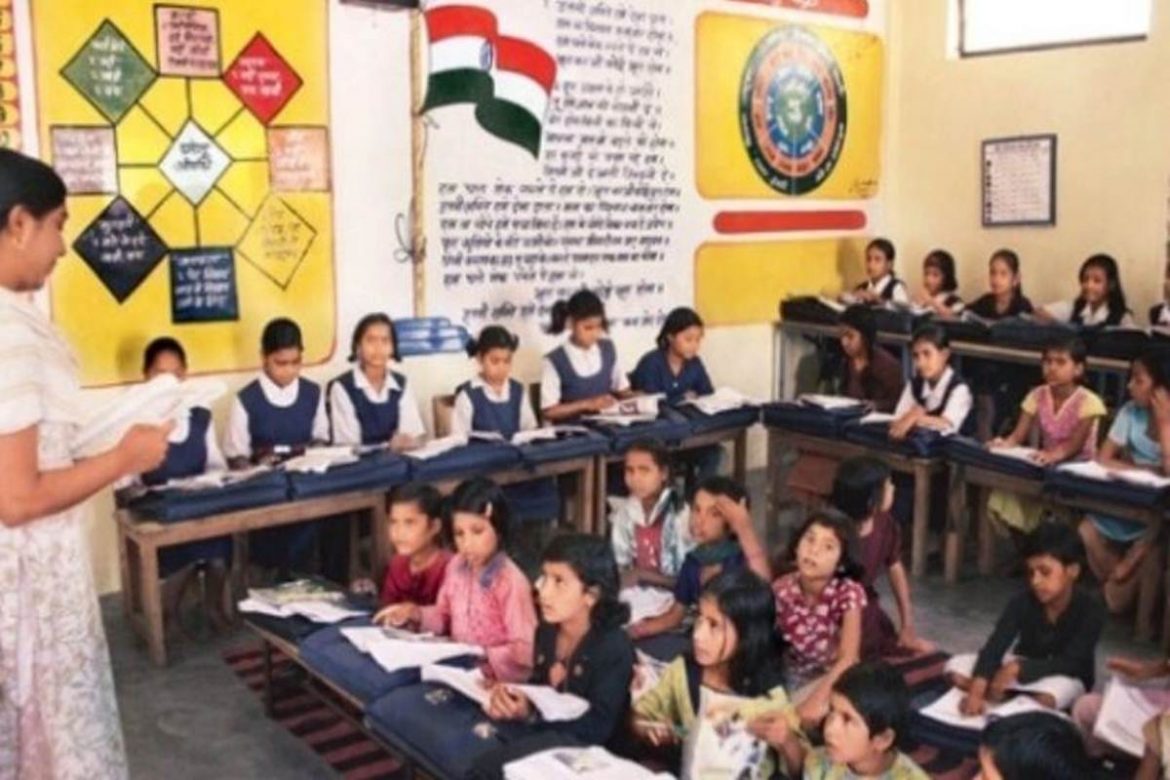From June, Class 1 students in Maharashtra State Board schools will use new textbooks based on the NCERT curriculum, commonly followed by CBSE schools. This is part of the state’s plan to adopt the CBSE education model.
The decision has caused confusion among schools, teachers, and parents, with some worried it may weaken the Maharashtra State Board’s identity. However, the government insists that adopting the CBSE model with the NCERT curriculum will improve education quality in the state.
What is the CBSE model?
The CBSE model, based on the NCERT curriculum, will be adopted by Maharashtra State Board schools. NCERT textbooks will be used for universal subjects like mathematics and science. For subjects requiring local context, like languages and social sciences, the State Council for Educational Research and Training (SCERT) will develop the syllabus.
This change will be implemented in phases. Starting in the 2025-26 academic year, Class 1 will follow the new curriculum. Other classes will follow in stages: Classes 2, 3, 4, and 6 in 2026, Classes 5, 7, 9, and 11 in 2027, and Classes 8, 10, and 12 in 2028.
Despite talks of aligning with the CBSE’s April academic cycle, Maharashtra will continue to start the academic year in June, respecting the state’s weather conditions and traditions.
Why is it being adopted?
The state government’s decision to adopt the CBSE model aims to improve education quality and prepare students for competitive exams like JEE and NEET, which are crucial for top professional courses after Class 12. By using the NCERT curriculum, students will benefit from a more standardized learning experience.
Maharashtra’s School Education Minister, Dada Bhuse, emphasized that the CBSE model focuses on conceptual understanding rather than rote learning, with continuous assessments supporting overall development. This approach aligns with exams that many Maharashtra State Board students take.
The decision was made by a steering committee that developed the State Curriculum Framework (SCF) under the National Education Policy (NEP) 2020. After considering input from experts and stakeholders, the framework was finalized, and changes will be implemented in phases.
Will all state board schools will now be CBSE schools? Will Maharashtra State Board close?
No, Maharashtra State Board schools will not become CBSE schools, nor will the State Board be closed. The schools will remain affiliated with the Maharashtra State Board. The term “CBSE model” refers to adopting the NCERT curriculum and the continuous evaluation system used in CBSE schools. This means Maharashtra State Board schools will now follow the NCERT curriculum and CBSE’s evaluation methods, but they will still retain their affiliation with the state board.
The state education department has clarified that the Maharashtra State Board will not be closed. The government believes that with these changes, the board will better integrate modern learning practices while preserving the state’s educational identity and culture.
What happens to SSC, HSC exams conducted by the state board?
Both the exams will continue to remain as it is and the Maharashtra State Board will still be responsible for conducting these exams.
What is the controversy?
As the state adopts the CBSE model of education, there are concerns that the Maharashtra State Board might be dissolved or closed. Critics worry that a national-level curriculum could overshadow the rich cultural history of Maharashtra, which has been celebrated in state board schools through Marathi-medium education, focusing on saints, social reformers, and regional traditions.
However, the school education department has assured that the revised curriculum will place special emphasis on Maharashtra’s culture, traditions, and historical figures. The new syllabus for subjects like history, geography, and languages will be developed by SCERT, using NCERT as a base but incorporating the local context. Moreover, studying Marathi will remain mandatory in all schools across the state.
👉 Click here to read the latest Gujarat news on TheLiveAhmedabad.com




